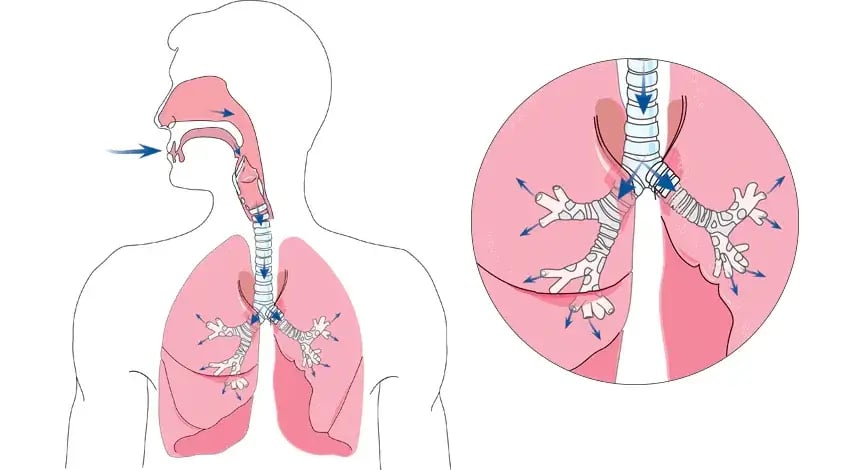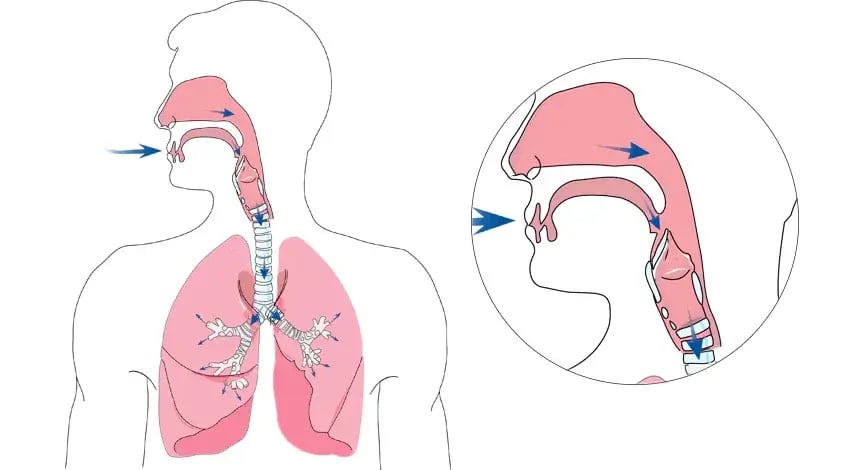What Happens During Normal Breathing?
Topics: Respiratory Care - Chest Wall disorders
To find out what could be affecting your ability to breathe properly, it’s helpful to first understand what normal breathing looks like.
Breathing is automatic
It might sound simple, but it’s important to realize that breathing is not something we have to consciously remember to do. It’s a reflex that is controlled by nerve cells in the brain and spine.
The upper and lower airways
The respiratory system is made up of 2 parts: the upper and lower airways.
Upper airway

Lower airway

The lower airway is protected by the chest cavity, which also contains the heart and lungs.
The breathing process
What starts the breathing process is actually the effort you make (from your chest) to draw air into your body.
When you breathe, the air entering your nose is cleaned, warmed and moistened. It then travels through your throat to the windpipe, and down to the bronchi in the lungs.
As you inhale and exhale, your chest and ribs expand and contract to allow for the air going in and out.
Abnormal breathing
As you can imagine, the everyday act of breathing can become very difficult if you have a respiratory condition that affects the muscles, nerves, reflexes or organs involved in breathing.
Learn more about respiratory conditions:
- COPD
- Neuromuscular disease
- Cheyne-Stokes respiration
- Respiratory conditions in children
- OHS
- Restrictive lung disease